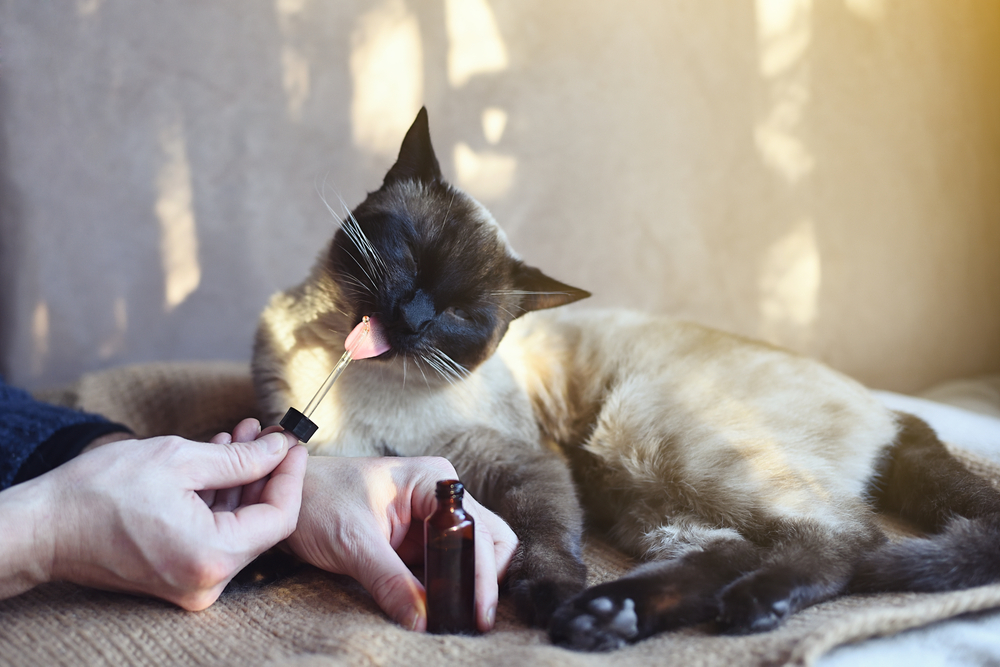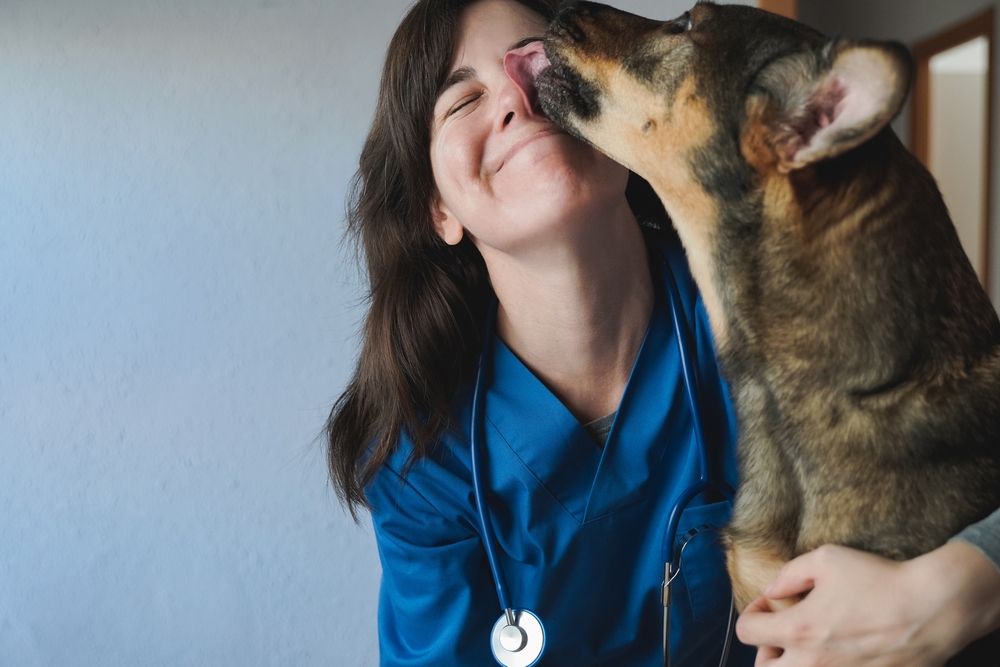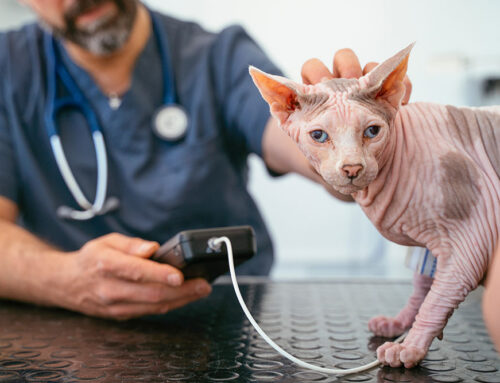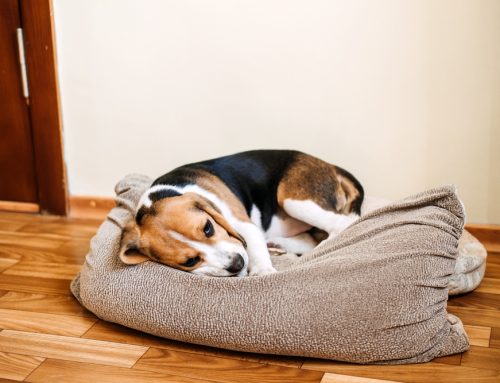Many pets experience stress and anxiety during vet visits. They seem to have a sixth sense of when their owners are ready to take them for a veterinary visit and they grow anxious almost immediately. Pets are attached to their homes and predictable routines, so their emotions surrounding the veterinary office’s unfamiliar sights, sounds, and smells can cause fear, stress, and even aggression. As a result, many pet owners delay getting their pets needed preventive veterinary care to avoid stress.
Our Willow Wood Animal Hospital team cares about your pet’s well-being. To help you and your pet have a positive veterinary visit experience and keep them in good health, follow our tips.
Practice handling your pet
Pets are touched many times during a veterinary visit, so spending time desensitizing them to this necessary handling long before their visit is a great way to reduce their stress and yours. Practice gently touching sensitive areas, such as their feet, toenails, ears, and tail, while using positive reinforcement techniques such as treats, positive words, and gentle touch. Practice for five minutes daily, and you’ll see your pet grow increasingly comfortable when touched in these sensitive body spots. Pet owners should handle puppies and kittens gently in this same manner from birth, as young pets can more easily acclimate to being handled.
Ease your pet’s travel fears
Some pets associate their carrier or the car with stress. Just as you can teach your pet to accept handling with minimal stress, you can acclimate your pet to their carrier and vehicle similarly.
For cats, start by leaving their carrier in an out-of-the-way spot in the house. Wipe it with feline pheromones, open the door, and place an inviting blanket and treats inside. Your curious cat will naturally explore and, over time, learn to see the carrier as a safe and happy place, making trips inside it more positive.
To acclimate your dog to the car, teach them that the vehicle is a happy place by starting slowly and helping them form a positive association with it. If your dog is afraid of the car, start by giving them a treat to get in and a treat to get out. Gradually work up to a five-minute ride, keeping things short and positive. If your dog is hesitant about the car, consider these additional tips:
- Give your dog a special toy that they can take on car rides.
- Offer small treats during car rides.
- Teach your dog to love the car by taking them to fun places such as the park.
- Play quiet music and speak in a calm voice while in the car.
- Use a carrier or a seat belt restraint to help them feel secure and calm.
Exercise your pet
A tired pet is often a calm pet, so take the opportunity to walk your dog or play with your kitty before coming to the veterinary office. Allowing your pet to burn off some energy before your visit can relieve everyone’s stress.
Use positive reinforcement with your pet
Before, during, and after your pet’s vet visit, offer small, tasty treats to keep your pet’s attention on you and reward them for a job well done. Positive reinforcement training keeps your pet focused and helps them form a positive association with the veterinary office, which can help them remain calm during their next visit.
Take a happy veterinary office visit
Stop by for a quick, no-stress visit to teach your pet that the veterinary clinic can be a happy place. When you come by, our team will give treats, loving pets, and happy attention, which communicates to your furry pal that the vet office is a positive place.
Communicate with our veterinarian
When your pet is here for their exam, take the opportunity to talk openly about their fears and triggers. If we know they don’t like being handled on a particular part of their body, we may can modify our approach to help your pet stay calm.
Stay calm to help your pet stay calm
Your demeanor and mindset can go a long way toward helping your pet stay calm during veterinary visits. If you are nervous about how your pet will react, they can often feel that anxiety and may respond by becoming more anxious themself. Try to project calm confidence that nothing wrong or unusual will happen.
Administer a pet anti-anxiety medication

Some pets are so fearful at the veterinary office that they need more help than desensitization, pheromones, and positive reinforcement can provide. For these pets, we can prescribe an anti-anxiety medication you can administer at home before your visit to help your furry pal stay calm. Our goal is for them to have a positive memory of their experience and to feel relaxed.
Taking your pet to the veterinarian does not have to be a stressful experience. By following our tips, you can help your pet feel more comfortable and relaxed during their next veterinary visit. Regular veterinary visits and preventive care are crucial to your pet’s good health, so don’t let their anxiety prevent you from getting them the care they deserve. Our Willow Wood Animal Hospital team understands your concern about your pet’s stress. We are here to make your furry pal’s experience as comfortable as possible, so schedule their wellness appointment with our team.







Leave A Comment